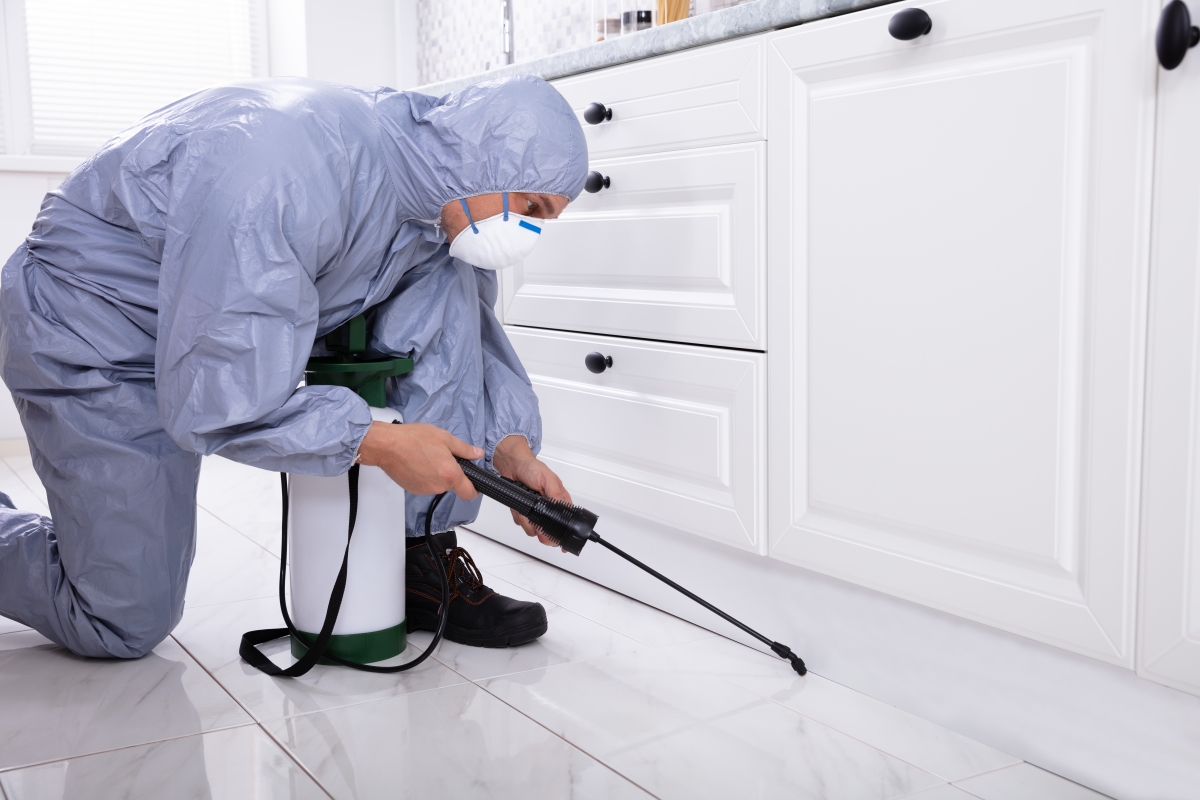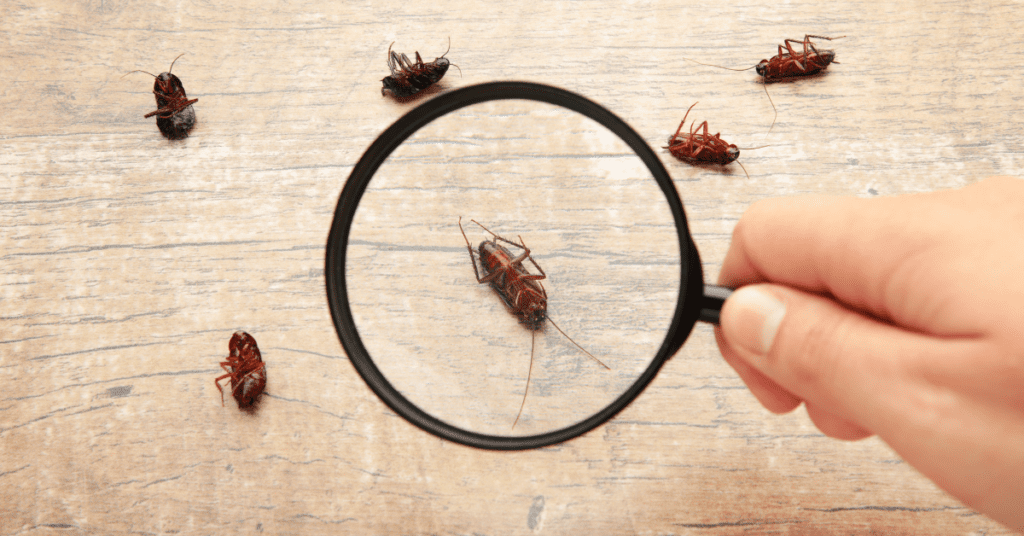Safe and Trustworthy Pest Control for Lasting Security
Reliable parasite administration calls for a diverse approach that stabilizes ecological integrity with the demand for reliable parasite suppression. The subtleties of these methods might not be promptly clear, prompting a more detailed examination of the techniques that can lead to lasting pest control results.
Understanding Parasite Control Techniques
Parasite control encompasses a selection of methods targeted at handling and eliminating unwanted pests and rats that can endanger both health and property. Comprehending these techniques is important for effective pest monitoring.
The main classifications of pest control approaches include mechanical, organic, and chemical approaches. Mechanical methods include physical barriers and traps to avoid bug entrance and capture undesirable types. Making use of displays on windows or employing sticky catches can significantly lower bug populaces without introducing hazardous substances - exterminator coquitlam.

Chemical parasite control is usually one of the most recognized technique, making use of chemicals to get rid of bugs. These chemicals can be efficient but must be made use of with caution to avoid adverse impacts on non-target types and the atmosphere.
Benefits of Eco-Friendly Solutions
How can environmentally friendly services transform parasite control practices? The fostering of eco-friendly parasite control methods offers numerous advantages, dramatically enhancing the effectiveness and safety of insect monitoring (exterminator coquitlam). These solutions utilize natural active ingredients, decreasing the dependence on harmful chemicals that can present threats to human health and the setting. This change not only shields households and pet dogs but also reduces the capacity for soil and water contamination.

Another benefit is the favorable influence on local biodiversity. Eco-friendly services are designed to target details pests while preserving useful insects and wild animals, promoting a balanced ecological community. This strategy straightens with the expanding customer demand for sustainable practices, improving the credibility of pest control service providers.
Integrated Pest Management Techniques
The application of green options normally results in the adoption of Integrated Insect Monitoring (IPM) approaches, which further boost parasite control efficiency. IPM is an all natural method that incorporates multiple strategies to take care of pest populations while lessening ecological impact. This method stresses the use of biological, social, mechanical, and chemical controls, making certain a sustainable and balanced method of insect monitoring.
One fundamental element of IPM is the extensive assessment of insect task and ecological problems. By monitoring pest populations and identifying their life cycles, professionals can carry out targeted ant pest control treatments that disrupt the pest's habitat or lifecycle, decreasing reliance on chemical pesticides. Furthermore, social techniques such as crop rotation and environment adjustment can considerably lessen pest establishment and recreation.
An additional critical element is using organic control representatives, such as helpful bugs or microbes, which can naturally subdue pest populations. When chemical applications are required, IPM focuses on the usage of low-risk chemicals and applies them selectively, lessening exposure to non-target microorganisms and human beings.
Integrating IPM techniques not just boosts pest control efficiency yet likewise advertises a safer ecosystem, straightening with the growing demand for sustainable practices in insect management.
Safe Practices for Property Owners
Comprehending the value of risk-free methods in insect control can equip house owners to properly take care of bug problems while securing their health and wellness and the atmosphere. Applying safe approaches and precautionary steps is important in reducing direct exposure to unsafe chemicals.
Homeowners must initially examine their environment for conditions that draw in parasites, such as standing clutter, water, and food waste. On a regular basis cleaning and securing access points can discourage insects from invading the home. Making use of all-natural deterrents, such as essential oils or diatomaceous planet, can offer efficient options to chemical pesticides.
When chemical therapies are necessary, homeowners read this post here ought to go with items pest exterminator that are especially classified as secure for residential use. It is important to follow application guidelines carefully to stay clear of too much exposure. Using targeted treatments in areas where bugs are recognized, rather than blanket splashing, can significantly minimize chemical usage.
Last but not least, keeping open interaction with parasite control specialists is essential. Home owners need to make inquiries regarding the safety of items made use of and demand environmentally friendly options whenever possible. By taking on these secure methods, house owners can produce a much healthier living environment while properly managing insect problems.

Tips for Long-Term Security
Establishing a pest management approach that stresses long-lasting protection can greatly boost the efficiency of the safe practices formerly reviewed. To accomplish this, house owners ought to execute regular examinations of their residential property, concentrating on hidden locations such as attics, cellars, and crawl areas. Early detection of bug task is important in preventing problems from holding.
These methods minimize attractants that attract parasites right into the home. Sealing entry points, such as cracks around doors and windows, can successfully block prospective bug accessibility.
Landscape design needs to additionally be considered; maintaining plants cut and keeping a range in between plant life and the home decreases concealing places for parasites. Making use of all-natural deterrents, such as important oils or diatomaceous earth, can even more dissuade infestations without resorting to harsh chemicals.
Lastly, collaborating with a professional insect control service for periodic evaluations can provide an extra layer of safety and security. These professionals can use customized referrals and progressed therapies, guaranteeing that your home stays shielded against insects in the lengthy term.
Final Thought
To conclude, reliable and safe bug control requires a diverse strategy that highlights eco-friendly methods and incorporated parasite monitoring. By applying all-natural deterrents, performing routine evaluations, and keeping correct hygiene, residential or commercial property owners can dramatically minimize pest populaces while securing advantageous pests and the atmosphere. Cooperation with expert pest control solutions improves the performance of these approaches, making sure tailored remedies that supply long lasting defense and peace of mind versus future invasions.
Reliable parasite administration needs a complex strategy that stabilizes ecological stability with the demand for reliable insect reductions. The fostering of environment-friendly parasite control methods uses countless benefits, considerably improving the performance and security of bug monitoring.The application of environment-friendly solutions normally leads to the fostering of Integrated Bug Administration (IPM) strategies, which additionally improve parasite control efficacy. exterminator coquitlam. By monitoring parasite populations and determining their life cycles, professionals can apply targeted treatments that interfere with the parasite's environment or lifecycle, reducing reliance on chemical pesticides.In conclusion, risk-free and trusted insect control needs a complex approach that highlights eco-friendly techniques and incorporated insect monitoring